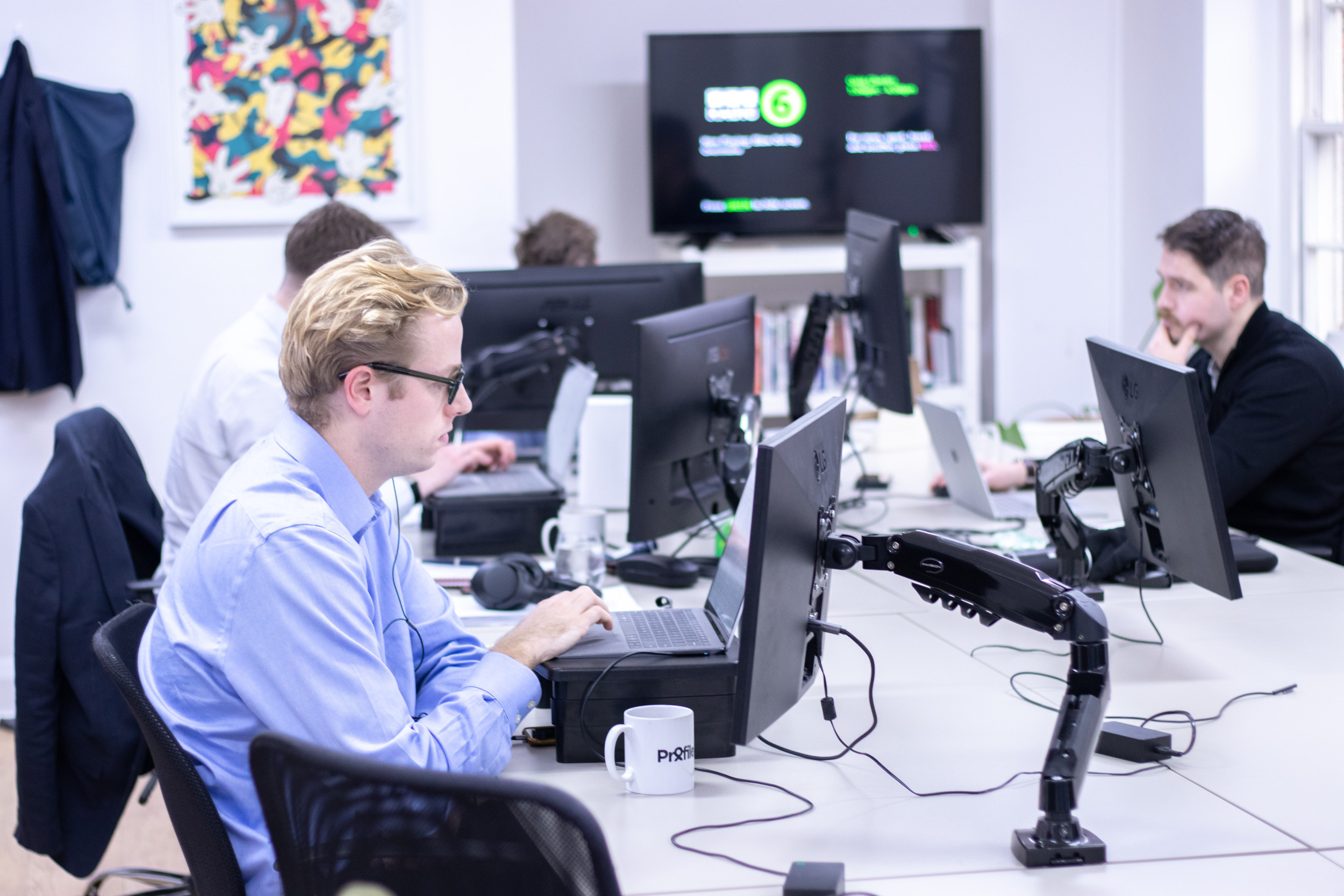Insight
Diary: Studio sessions with radio and broadcast media
Arthur Lee provides an overview of a client's studio session with a reputable business and culture radio station.

[NEW INSIGHT] Why multimedia is becoming a CEOs most powerful thought leadership tool in 2026
Radio and broadcast media play an important part in positioning our clients as impactful thought leaders.
Most recently, one of our media executives, Arthur Lee, secured an interview for a media and technology client with a reputable business and culture radio station.
We recently asked Arthur about how he secured the opportunity and its significance for the client's profile, besides much else.
How did you arrange this opportunity?
AL: Part of my role as a media executive at Profile is to have a good understanding of the media landscape and the ideal journalists who our clients can strike a chord with.
I’ll often keep on top of the various trends journalists cover during radio and broadcast media recordings, whether it's AI innovation, IPO surges, or cyber security regulation, so I can capitalise on any opportunities.
Having that specialism in tech really helps me understand complex topics, draft persuasive pitches, build familiarity with journalists, and foster strong relationships.
On this occasion, I knew the station would be keen to have this specific client as a guest since their most recent episode directly mirrored the client's area of expertise.
But more importantly, I was confident the client could move the story forward with a fresh and original angle.
I was able to secure a recording session within just a couple of weeks.
How did you prepare the client?
AL: Preparing a client for an interview when it's their first time visiting a radio and broadcast media studio is crucial. There are so many factors to consider.
We always make sure that the client knows:
The journalist who will interview them.
The questions the journalist might ask them.
Their media positioning and key messaging.
The importance of leaving a good impression so the journalist wants to work with them again.
Not only did we provide all of this information within a written brief, but I also supported the client right up until their recording session.
After all, it can be a nerve-racking experience for anyone.
What are the benefits of radio and broadcast media opportunities over editorial?
AL: There are quite a few benefits.
For starters, radio and broadcast media continue to be much more credible than any other form of media.
Whenever we secure these opportunities, we are always ecstatic about them.
They're so hard to come by, given the limited time slots these studios have, so we always encourage our clients to partake in them, even if they are nervous about doing so.
While editorial pieces are great, radio and broadcast media slots allow clients to diversify their online content and appear much more human to their audiences.
After all, at its roots, PR is all about storytelling. If audiences can’t empathise with the individual at the centre of a story, it will never have any real impact.
Once the coverage comes out, the recordings can be edited and repackaged into shorter videos for social media, which brings additional value over the long term.
Why is it important to build a network of radio and broadcast media contacts?
AL: Unlike traditional editorial publications, there aren’t hundreds or thousands of good-quality radio and broadcast media stations.
Each will have just one or two producers responsible for booking guests for shows. And most of the time, these guys will be swarmed with PR agencies looking to book their clients.
Yes, a good pitch and story will draw the attention of these producers and guest bookers, but more often than not, a relationship with these producers will be more important.
In principle, a network of five to ten contacts responsible for booking various slots will always give you a better chance of securing media opportunities.
We often spend a lot of time taking these producers for lunch or even a cup of coffee to cement our relationships. More often than not, putting in that extra downtime is worth it.
What did you enjoy most about the recording?
AL: It’s always nice when you see the recordings pay off and our clients enjoy them.
In this particular instance, the client's conversation with the hosts went on for a considerable time, and they said some great things that were well-received.
Usually, this is a good sign, as it means their audiences will resonate with their ideas too.
I’m now more confident that if I pitch the client to future radio and broadcast media slots, producers will be keen to take them on since there is a near guarantee that they will perform well.
What did you learn from the experience?
AL: It was great to see the inner workings of a major radio and broadcast media network.
As a media executive, you need to see things from the perspective of producers since we’re working in tandem with them every day.
These insights can help you tailor your pitches better and improve your relationship with the team.
I was also able to have a good look at how the client handled the session and their ability to hammer home their key messaging and stay on topic.
You have to assess the minor details like their body language, delivery, and presentation to find areas for improvement. I can then feed this back to the client so they perform even better the next time.